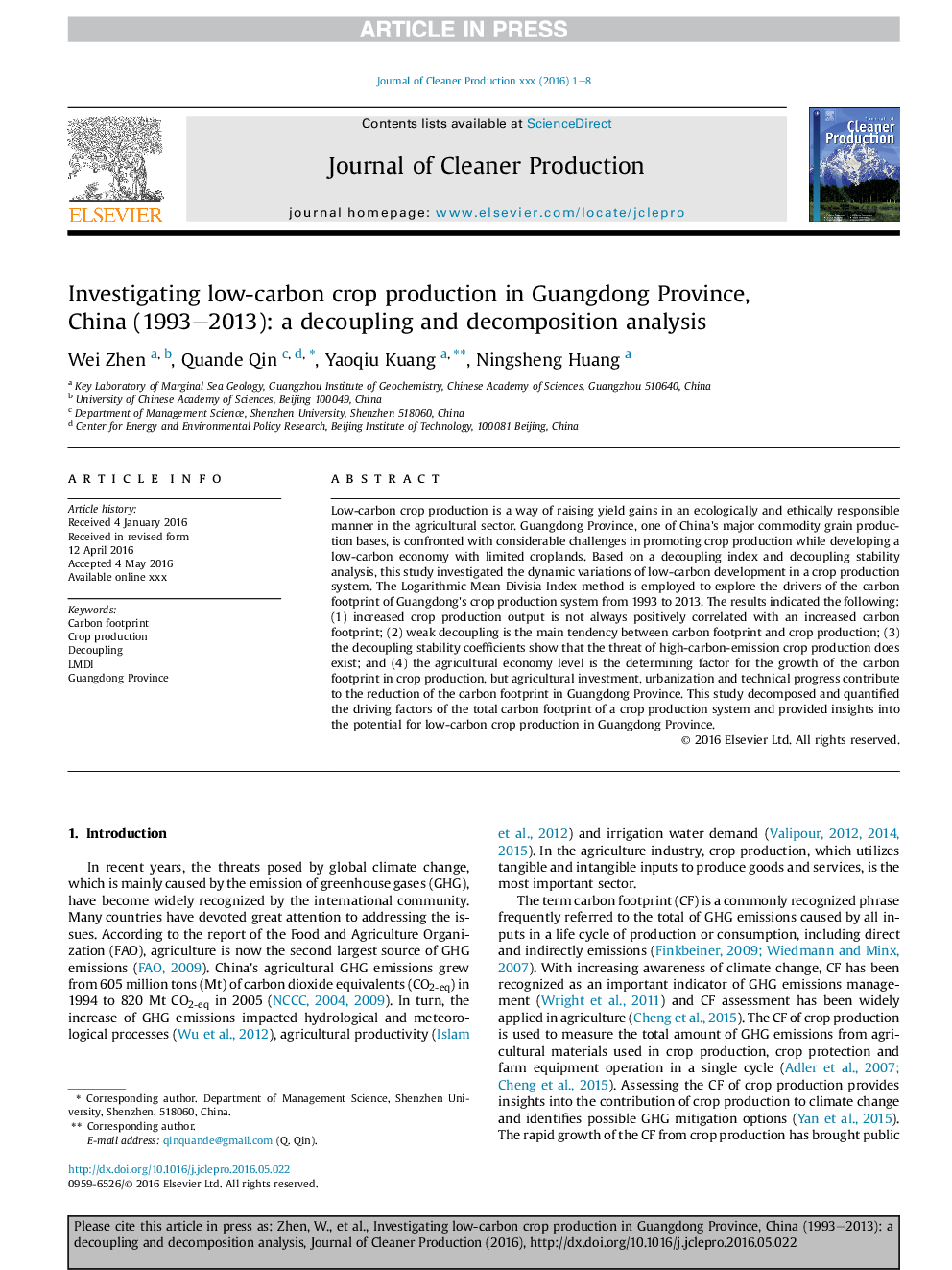| Article ID | Journal | Published Year | Pages | File Type |
|---|---|---|---|---|
| 5480145 | Journal of Cleaner Production | 2017 | 8 Pages |
Abstract
Low-carbon crop production is a way of raising yield gains in an ecologically and ethically responsible manner in the agricultural sector. Guangdong Province, one of China's major commodity grain production bases, is confronted with considerable challenges in promoting crop production while developing a low-carbon economy with limited croplands. Based on a decoupling index and decoupling stability analysis, this study investigated the dynamic variations of low-carbon development in a crop production system. The Logarithmic Mean Divisia Index method is employed to explore the drivers of the carbon footprint of Guangdong's crop production system from 1993 to 2013. The results indicated the following: (1) increased crop production output is not always positively correlated with an increased carbon footprint; (2) weak decoupling is the main tendency between carbon footprint and crop production; (3) the decoupling stability coefficients show that the threat of high-carbon-emission crop production does exist; and (4) the agricultural economy level is the determining factor for the growth of the carbon footprint in crop production, but agricultural investment, urbanization and technical progress contribute to the reduction of the carbon footprint in Guangdong Province. This study decomposed and quantified the driving factors of the total carbon footprint of a crop production system and provided insights into the potential for low-carbon crop production in Guangdong Province.
Related Topics
Physical Sciences and Engineering
Energy
Renewable Energy, Sustainability and the Environment
Authors
Wei Zhen, Quande Qin, Yaoqiu Kuang, Ningsheng Huang,
